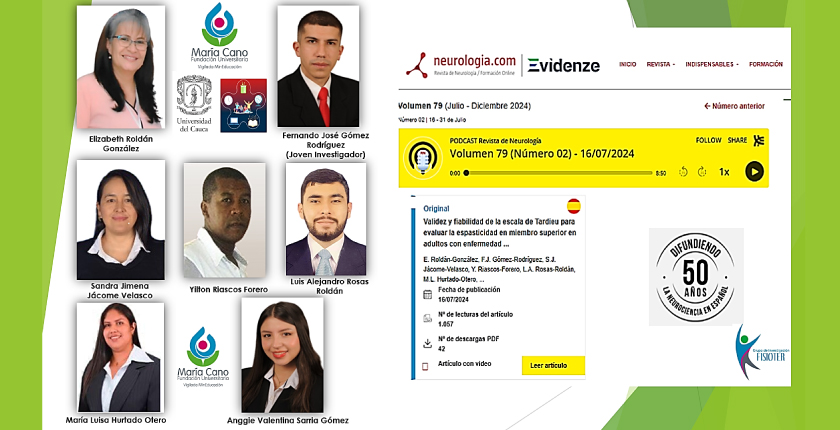In a joint effort by professors, graduates, young researchers, and collaborators from Fundación Universitaria María Cano, the University of Cauca, and the Universidad Mariana, the Popayán campus reaffirms its commitment to the development and dissemination of research project results. These initiatives are focused on finding alternatives that promote the well-being and quality of life of adults and the elderly, contributing to the creation of more inclusive and healthy communities.
As a result of this collaborative work, the publication of the chapter titled “Relationship of sociodemographic and anthropometric factors with lifestyle and functional capacity in elderly people from Popayán, Cauca” stands out. This chapter is part of the book «Multidisciplinary Perspectives on the Evaluation of Health and Well-being of Older Adults.» The chapter was authored by professors Elizabeth Roldán González and Leila Rosmery Imbachi, along with graduates María Luisa Hurtado Otero and Mary Cielo Vivas Quiñones, and external collaborator Eliana Leyton Luna.
The work in which this chapter is included serves as a call to action for policymakers, as it seeks to inspire significant changes in the care and services directed at the elderly population. Through innovative and humanitarian approaches, it integrates perspectives from various disciplines such as Nursing, Physiotherapy, Occupational Therapy, Psychology, and Law, with the aim of improving the quality of life for this population.
For more information about the book and how to acquire it, visit the Universidad Mariana’s editorial website at the following link: https://libros.umariana.edu.co/index.php/editorialunimar/catalog/book/183.
Additionally, as part of a strategic collaboration between the Fisioter group, the University of Cauca, and the Young Researchers and Innovators program from the Department of Cauca, an article was published in the Journal of Neurology, one of the most prestigious scientific publications in the field.
The article, titled «Validity and reliability of the Tardieu scale in assessing spasticity in the upper limbs of adults with cerebrovascular disease,» presents an in-depth study of this clinical evaluation tool. Spasticity is a common and debilitating symptom in individuals with cerebrovascular diseases, and this study confirmed the robustness of the Tardieu scale, particularly in measuring angles and speeds essential for evaluating spasticity. However, the researchers emphasize the need to consider factors such as sample size, disease progression, and patient age when interpreting the results.
The Journal of Neurology, recognized and categorized in international databases such as Clarivate, MEDLINE/PUBMED, and SCImago, is a key platform for disseminating high-impact research. We invite the scientific community and interested public to read and download this article, which represents a significant contribution to the field of neurology and physiotherapy.
To access the full text, click here: https://neurologia.com/articulo/2024093

